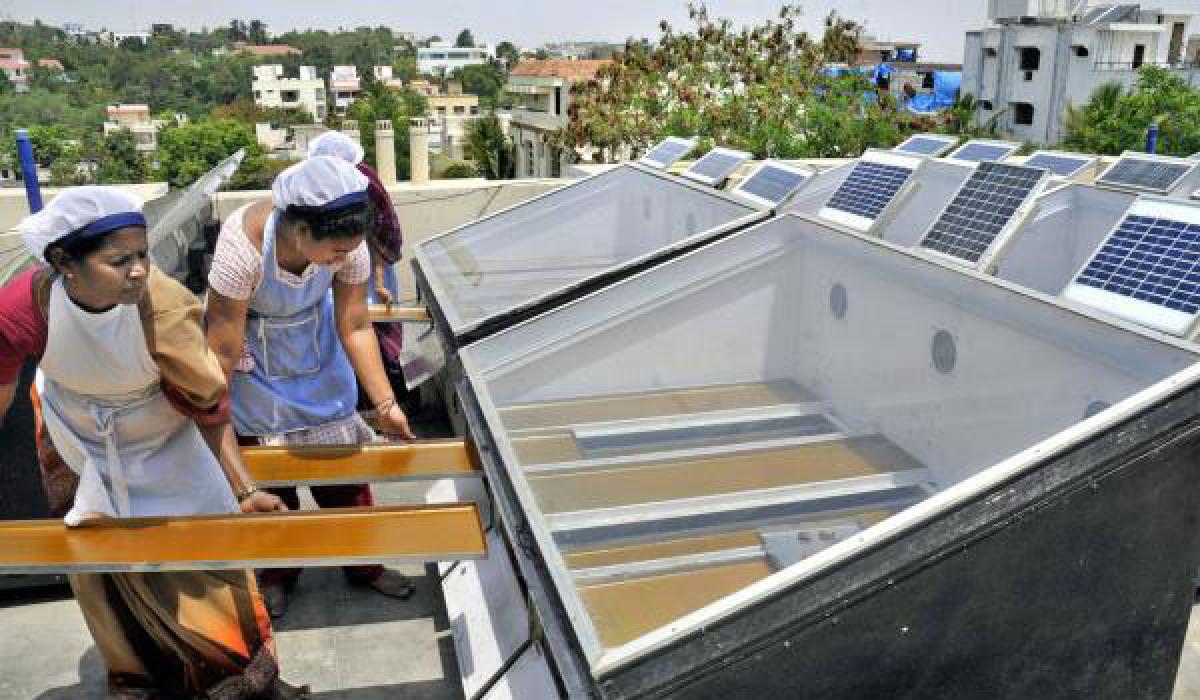Live
- Police destroy ganja plantation
- UBI gesture to 3 welfare hostels
- Overwhelming response to Vijayawada Marathon
- Public Garden stepwell rots in apathy, walkers raise a stink
- Dinakar to send report to CM for justice to victims
- GHMC wakes up from slumber, out to tame stray dog menace
- Victoria Kjaer Theilvig: Denmark’s First Miss Universe Winner Makes History
- Health minister for action against ragging offenders
- HMWSSB lays focus on commercial buildings to fix sewage problem
- Rich tributes paid to Ramamurthy Naidu
Just In

With the beginning of the summer season, the mango jelly units are gearing up to start their activity of with both sugar and jaggery. There are 150 identified units in East Godavari spread over Sarpavaram, Tammavaram Panduru in Kakinada rural, Gollaprolu, Atreyapuram and other areas in the district.
Kakinada: With the beginning of the summer season, the mango jelly units are gearing up to start their activity of with both sugar and jaggery. There are 150 identified units in East Godavari spread over Sarpavaram, Tammavaram Panduru in Kakinada rural, Gollaprolu, Atreyapuram and other areas in the district.
Together they make 45,000 MT of jelly during the season .Very few of these run the activity round the year except in rainy season by preserving the mango pulp.Some of these units use machinery process for extracting the pulp from mango fruits.With almost two third of the total manufacturers opting for local market due to different reasons ,
Highlights:
- To substitute open drying mode
- Farmers to get solar dryers at subsidised price to improve hygiene and quality of the produce
the remaining opt for marketing at Kolkata, Chennai , Bengaluru, Mumbai , New Delhi and other markets . The price they get is Rs 150 per kilo at the markets and together the sales touch Rs 25 to Rs 30 crore per year. In the present season though a bumper crop is expected, the price in retail market is a cause of concern for mango jelly farmers both in local and outside the state markets.
A mango jelly manufacturer at Sarpavaram in Kakinada rural, Pulla Sri Ramulu said that the increased cost or labour and other expenditure , the returns in the form of financial aspect from the market are not that much encouraging. “The main drawback in this aspect is open drying of mango jelly.
If the drying can be taken up in hygienic conditions we get double the present price up to Rs 250 to Rs 300 from the present price of Rs 150 per kilo in Kolkata, New Delhi and other markets” he informed. In order to get better price for mango farmers the horticulture department proposed solar dryers for drying capacity of 1.50 MT at a time.
The estimated cost of this is Rs 14.25 lakh for each dryer. On this cost, 70 percent subsidy will be extended to these sections for improving the hygiene and quality of the product. East Godavari collector H Arun Kumar who is very keen to get better price for mango jelly farmers said that a specially designed solar dryer is being brought out for this purpose.
After conducting tests of suitability the same will be ordered in bulk quantities to suit to the needs of mango jelly makers the collector clarified.

© 2024 Hyderabad Media House Limited/The Hans India. All rights reserved. Powered by hocalwire.com







